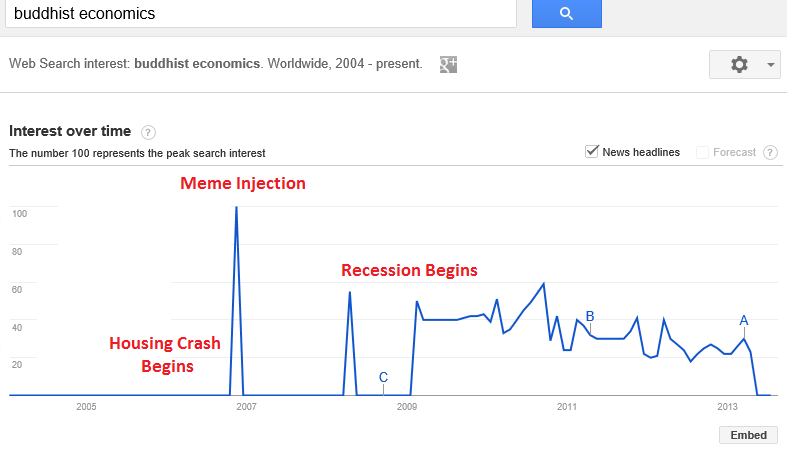In 2005, I was monitoring the housing industry for recession indicators and in December the home inventory trendline reversed due to a sales slowdown, a strong indicator. So I expected a recession soon.

Naomi Klein released "The Shock Doctrine" in 2007 and I realized her concept of economic shock was similar to my "diffraction" theory, memetic manipulation (i.e. how permanent re-allocation of mental bandwidth occurs)
I read Buddhist Economics for an ethics class in 1994 but I didn't grasp it until years later. And that's when I conceived of injecting a "buddhist economics" meme across the Internet BEFORE the recession, laying down a bear trap for an oncoming bear. I hoped the pre-seeding would trigger a resurgence in buddhist economics after the recession hit.
I nicknamed it "The Big Ping".
I seeded the meme in two economics sites, CalculatedRisk and Nouriel Roubini's site, reaching 100-150K readers. As Google Trends graph shows, the concept (probably) worked, cause and effect are tricky things, and the recession triggered an additional 2 to 3 million readers, a 20-fold multiplier. But a multiplier of 200 was probably needed for permanent trend.
I believe that Buddhist Economics is a natural evolution of classic economic theories. I've learned memes are often a matter of timing for something already fated to happen. You can speed up or slow down trends but the final outcome is often pre-determined by culture and history.

Comments